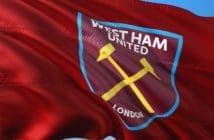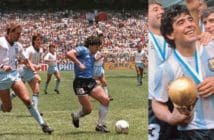Danny Jordaan has never been known to hide from a battle. He is of course famous for leading South Africa’s successful 2010 World Cup bid, and before that he was an active anti-apartheid activist, in the days when that nomenclature was not exactly safe. So he knows something about risk, he knows something about politics and he knows something about violence.
Cynics will conclude that his latest attack on the organisers of the African Cup of nations (ACON) is a well calculated PR attempt to further differentiate that troubled tournament from the one he is organising, this summer’s World Cup. Others will congratulate him on putting the truth before the notion that all Africa must unite to protect the sullied good name of the Angolan Organising Committee.

Jordaan: Angolans Knew Cabinda was Risky
The AFP is quoting Jordaan, who led a technical team to Angola in 2006 to assess its readiness for the tournament on behalf of the Confederation of African Football (CAF), as saying the risks were known.
“How long is it known that there is a separatist group in Angola for many many years? What are the possibilities of a terror attack? It was known. It is a responsibility of the host nation to deal with those issues,” Jordaan said.
He added that those concerns about the tournament were included in a report that was handed over to CAF, the body in charge of African Football. Once more he tried to distance South Africa from Angola.
“What happened in Angola has nothing to with South Africa. Please judge us fairly. We must be judged on reality, not on perception. We hosted 147 major international events since 1994 and we didn’t have any incidents,” he said.
Since the attack by Cabindan separatist guerrillas, soldiers have cordoned off the footballers’ village in Cabinda, and there is now tight security at the 20,000-seat Chiazi stadium, which hosted its first match in the tournament without incident on Monday.
Terrorists Threaten Further Attacks on Tournament
Two different terrorist groups have claimed responsibility for last week’s attack, highlighting the difficulties Angola faces in controlling a fractured guerrilla movement. The attack was initially claimed by Rodrigues Mingas, head of the Forces for the Liberation of the State of Cabinda-Military Position (FLEC-PM), who lives in exile in France.
But a larger group known as the Front for the Liberation of the Enclave of Cabinda-Armed Forces of Cabinda (FLEC-FAC) on Tuesday said they had opened fire on Togo’s convoy on Friday, killing two of the squad.
FLEC-PM has threatened more attacks during the Cup, but FLEC-FAC said their intended target was Togo’s military escort and vowed not to stage any more attacks during the competition.
Jean-Claude N’Zita, a top adviser to FLEC-FAC who lives in exile in Switzerland released a statement but we have taken an editorial decision not to allow terrorists, and their self-justificatory sophistry, a platform on this site. Both groups appear to have leaders who reside in Europe and make statements on behalf of the movements.
Background reporting:
Zakuani: Angola is not South Africa
![Prost International [PINT]](https://prostinternational.com/wp-content/uploads/2021/08/PINTtFontLogoRoboto1536x78.jpg)


